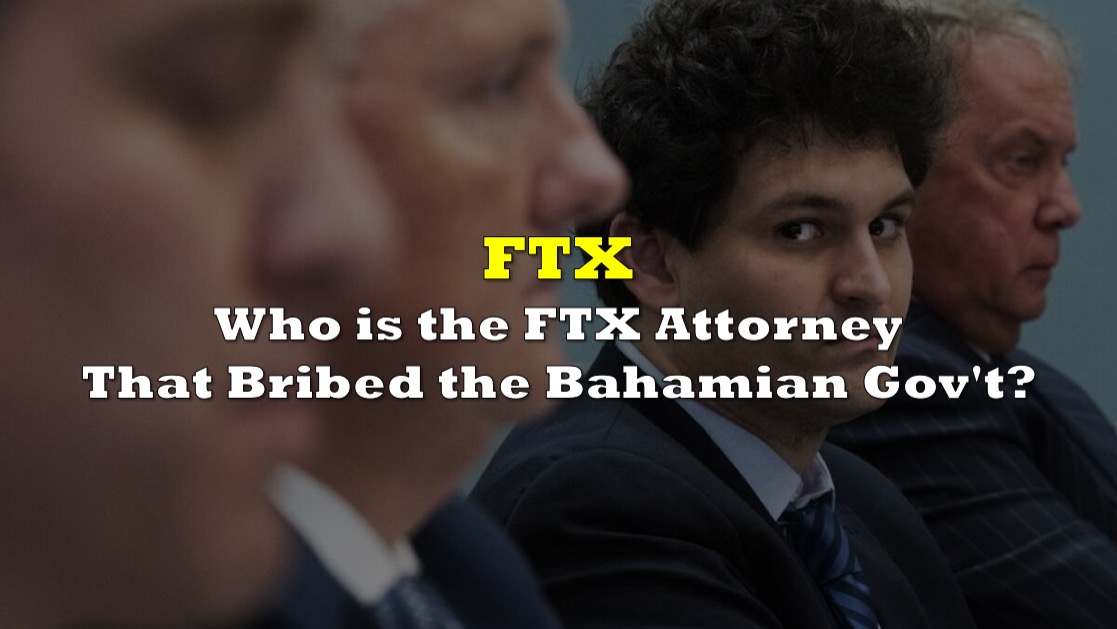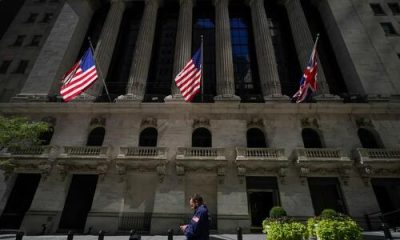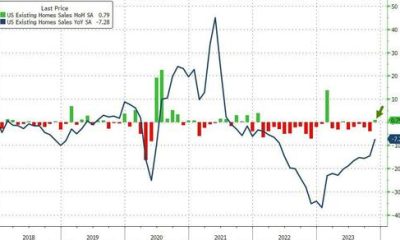Economics
Who is the FTX Attorney That Bribed the Bahamian Gov’t?
A recent report from the FTX bankruptcy team has unveiled shocking revelations about the failed exchange, exposing its misappropriation and
The post Who…

A recent report from the FTX bankruptcy team has unveiled shocking revelations about the failed exchange, exposing its misappropriation and commingling of customer deposits. The analysis indicates that FTX.com owed an astounding $8.7 billion to its customers, with senior executives actively concealing the financial troubles as early as August 2022.
According to the report filed on Monday, a significant portion of the $8.7 billion debt owed by FTX.com to its customers, approximately $6.4 billion, was misappropriated in the form of fiat currency and stablecoins.
Efforts to recover the assets have yielded promising results thus far, with approximately $7 billion in liquid assets already retrieved. Those involved in the asset search anticipate further recoveries in the future.
It is noteworthy, however, that these recoveries mostly consist of semi-liquid and illiquid assets.
John J. Ray III, the CEO spearheading the recovery for creditors, denounced FTX Group’s deceptive facade as a customer-focused leader of the digital age.
“The image that the FTX Group sought to portray as the customer-focused leader of the digital age was a mirage,” said Ray in a statement. “From the inception of the FTX.com exchange, the FTX Group commingled customer deposits and corporate funds, and misused them with abandon at the direction and by the design of previous senior executives.”
The meticulously prepared report, a product of months of analysis and forensic auditing, exposes management’s deliberate misuse of customer funds. It outlines instances where they lied to banks and auditors, fabricated false documents, and engaged in jurisdiction hopping to avoid detection of their misconduct.
Following an initial examination in April, CEO Sam Bankman-Fried, the founder of FTX, now faces a trial in New York for various criminal charges. The bankruptcy proceedings in Delaware are currently underway, with Ray diligently working to bring closure to the exchange’s affairs.
Attorney-1 and the “bonus”
At the center of the issue is a certain “Attorney-1” who the FTX team claimed assisted the FTX senior executives’ move to the Bahamas because it was “friendly” and “cutting back on red tape.”
“In moving to the Bahamas, where they incorporated FTX DM in July 2021, the FTX senior executives sought to minimize any substantive change to or scrutiny of their business. Thus, for example, on behalf of the FTX Group, in July 2021, Attorney-1 offered a former Bahamian government official, acting as an attorney, a $1 million “bonus” to procure a necessary business license for FTX DM within ten weeks. The attorney obtained the license less than six weeks later,” the team wrote in the report.
The report further claimed that the former FTX executives “did not commingle and misuse customer deposits by accident,” describing that Bankman-Fried, assisted by Attorney-1, “lied to banks and auditors, executed false documents, and moved the FIX Group from jurisdiction to jurisdiction.” They concluded that this was by design, “in a continual effort to enable and avoid detection of their wrongdoing.”
The FTX team showed a diagram outlining the movement of funds in and out of the Primary Deposit Accounts since the establishment of FTX.com in April 2019 until the FTX Group’s bankruptcy filing on November 11, 2022. The diagram visually depicts the sources of funding for the Primary Deposit Accounts, including deposits from FTX.com customers, the outflows from these accounts to various FTX Group entities, and subsequent outflows from these entities to both debtors and non-debtors.
Attorney-1, believed to be a senior FTX Group attorney, allegedly “actively facilitated and covered up the FTX Group’s commingling of customer and corporate funds.” For instance, the said attorney ordered a former FTX employee “to copy and paste into the application for North Dimension’s bank accounts the information that Alameda had previously submitted on its own applications to open its bank accounts.”
In 2020, FTX’s trading affiliate, Alameda Research, faced concerns from certain banks regarding its wire activity, leading to rejection of wires to or from Alameda. When questioned about using the account to settle trades for FTX Trading, a related company, Alameda falsely claimed that customer wires were solely for trades with Alameda Research.
To avoid scrutiny, the FTX Group created a new entity called North Dimension, falsely representing it as a crypto trading firm to obtain bank accounts for operating FTX.com, despite North Dimension being a shell company with no operations.
“In fact, as Attorney-1 and Bankman-Fried well knew, the information provided to Bank-1 about North Dimension was false. Unlike Alameda, which was a crypto trading and market-making firm with employees, operations and trading activity, North Dimension had no business operations or employees,” the report said.
Attorney-1 also reportedly fired another FTX, albeit less-senior, attorney who’d just been on the job for three months after he raised concerns on North Dimension. The latter, who “discovered and raised concerns that North Dimension accounts were being used to fund FTX exchange customer withdrawals,” said he was “still reeling from being summarily fired on Saturday after raising the concerns [he and Attorney-1] discussed.”
But he still urged “Attorney-1 to address ‘the most pressing issues’ facing the company, including with the assistance of an outside law firm, and noted that doing so would require Attorney-1 to tell the law firm ‘the whole truth’.”
The identity of Attorney-1 can’t be certainly identified but given the description and the reach of described actions, it is believed to be Daniel Friedberg, the former chief regulatory officer of FTX. Friedberg, earlier this year, has reportedly been actively cooperating with the authorities regarding the investigation into Bankman-Fried.
The report acknowledges the significant challenges faced by those attempting to trace FTX transactions and funding. The complex nature of the task further highlights the extent of the mismanagement and misconduct within the company.
Former Alameda CEO Caroline Ellison, along with other senior executives, were aware of the $8 billion debt owed to customers since August 2022. To conceal this shortfall, they created a deceptive account referred to as “our Korean friend’s account.” The report also reveals routine deception towards banking partners regarding the usage of accounts.
Information for this briefing was found via CoinDesk, Bloomberg, and the sources mentioned. The author has no securities or affiliations related to this organization. Not a recommendation to buy or sell. Always do additional research and consult a professional before purchasing a security. The author holds no licenses.
The post Who is the FTX Attorney That Bribed the Bahamian Gov’t? appeared first on the deep dive.

Argentina Is One of the Most Regulated Countries in the World
In the coming days and weeks, we can expect further, far‐reaching reform proposals that will go through the Argentine congress.
Crypto, Crude, & Crap Stocks Rally As Yield Curve Steepens, Rate-Cut Hopes Soar
Crypto, Crude, & Crap Stocks Rally As Yield Curve Steepens, Rate-Cut Hopes Soar
A weird week of macro data – strong jobless claims but…
Fed Pivot: A Blend of Confidence and Folly
Fed Pivot: Charting a New Course in Economic Strategy Dec 22, 2023 Introduction In the dynamic world of economics, the Federal Reserve, the central bank…


















